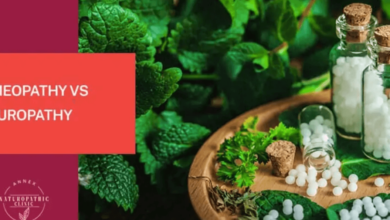Homeopathie: Alternate Spelling for Homeopathy

The term “homeopathie” serves as an alternate spelling for “homeopathy,” predominantly found in various European contexts. This linguistic variation not only illustrates the diverse cultural interpretations of the practice but also underscores the potential for miscommunication among practitioners and patients alike. As the field of alternative medicine continues to evolve, understanding such distinctions becomes increasingly important. This exploration invites further examination of how these terminological differences can influence perceptions and practices surrounding holistic health approaches. What implications might these variations have for patient care and global discourse?
Origins of Homeopathy
Homeopathy traces its origins back to the late 18th century, when Samuel Hahnemann, a German physician, sought to reform the medical practices of his time.
The historical development of homeopathy is rooted in Hahnemann’s foundational theories, such as the principle of “like cures like.”
This innovative approach challenged conventional medicine, advocating for a holistic perspective on health and wellness that emphasized individual patient needs.
Principles of Homeopathy
The foundational theories established by Samuel Hahnemann laid the groundwork for several key principles that define homeopathy today.
Central to this practice is individualized remedy selection, where practitioners consider the unique symptoms and constitution of each patient.
Through thorough patient consultation, homeopaths aim to understand the underlying causes of ailments, ensuring that treatment aligns with the holistic needs of the individual, promoting overall well-being.
Also read: Homeopathics: General Term for Homeopathic Remedies
Regional Variations in Spelling
Across different regions, variations in the spelling of homeopathy can lead to confusion and inconsistencies in understanding this alternative medical practice.
Notably, “homeopathie” is a common regional terminology in many European countries. Such spelling differences can affect communication among practitioners and patients alike, highlighting the need for clarity.
Recognizing these variations is essential for fostering informed discussions about homeopathy globally.
Homeopathy in Modern Practice
Variations in spelling may indicate differing practices and perceptions of homeopathy, which continue to evolve within modern healthcare systems.
Homeopathy is increasingly recognized for its potential efficacy, though its integration varies globally due to differing homeopathy regulations.
Practitioners advocate for evidence-based approaches to enhance credibility, while patients seek holistic alternatives in their treatment options, highlighting the ongoing dialogue surrounding its role in contemporary medicine.
Also read: Homeopathic Vs Herbal: Homeopathic Vs. Herbal Medicine: Key Differences
Conclusion
In conclusion, the alternate spelling “homeopathie” underscores the rich tapestry of linguistic and cultural diversity surrounding homeopathy. This variation not only reflects regional practices but also emphasizes the importance of clarity in communication within the field. As practitioners and patients navigate the complexities of alternative medicine, understanding these distinctions becomes essential. Just as the ancient roots of holistic healing continue to influence contemporary approaches, so too must awareness of terminology evolve to foster informed dialogue and effective care.





